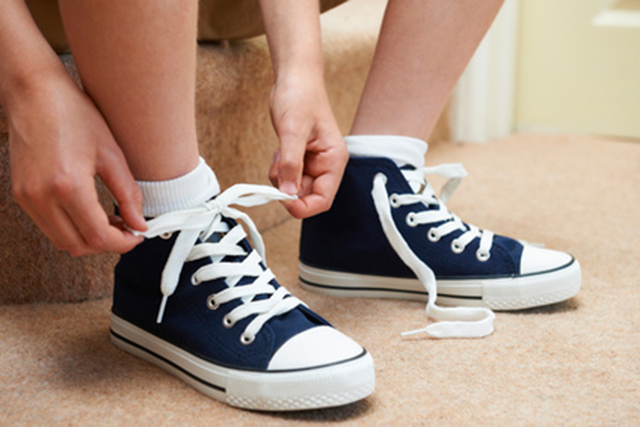In America, many people wear their shoes inside their house, while many eastern cultures practice removing their shoes before entering the house. While this may seem like a small, insignificant detail, it is more important than you think. Let’s look at 3 reasons why you should never wear shoes in your house.
A recent 2017 study found that a dangerous infection called Clostridium difficile is quite prevalent in everyday situations and locations. The study found that C. difficile was collected on the bottoms of shoes from parks, fast food restaurants, chain stores, and more.
1. Dirt:
“Dirt isn’t harmful on its own,” says Kelly Reynolds, Ph.D., a microbiologist and professor at University of Arizona, “but you probably want to keep it at a minimum, especially if you have toddler grandchildren who play on the floor. Kids often put their hands in their mouths, or have toys on the floor and put them in their mouths,” she added.
2. Harmful bacteria:
There are many types of bacteria — some harmful and some beneficial. A study from the University of Arizona found an average of 421,000 bacteria on the outsides of shoes, with nine different bacteria strains. Some of the strains found on the shoes were Escherichia coli (E. Coli), which is known to cause intestinal infections, diarrhea, and sometimes meningitis; Klebsiella pneumonia, which can cause urinary tract infections; and Serratia ficaria, which can cause respiratory infections.
“We walk through things like bird droppings, dog waste and germs on public restroom floors, all of which are sources for E coli,” says Dr. Reynolds. “The unique thing about the shoe environment is that other things you walk on like leaves and debris, can serve as food for the bacteria and help them grow.” This means that bacteria on shoes can survive for a long amount of time and contaminate your floors.
3. Toxins:
Toxins can also make their way onto your floors through your shoes. A study from the Battelle Memorial Institute found that toxins from your lawn could end up on your carpets.
Another study from Baylor University found that people who live near roads sealed with tar have an increased risk of cancer from toxin exposure. “Think about rain water in the street,” says Dr. Reynolds. “It can have gasoline in it and chemicals, and those get on your shoes and can be brought into your home.”
Note: None of the information in our website is intended to diagnose, treat, cure or prevent any illness or disease. The content on our website is for educational purposes only.
DON’T FORGET to sign up for our weekly newsletter to get our latest articles, updates, free recipes and giveaways.
Disinfectant homemade orange soap.
Antibacterial soaps pose potential risks to pregnant women and fetuses.
Detox the air your breathe in your home with this clove disinfectant air freshener.
1. “3 Gross Reasons You Shouldn’t Wear Shoes In The House.” Huffington Post. Huffington Post, 11 July 2015. Web. 18 Jan. 2018.
2. “Proximity to Coal-Tar-Sealed Pavement Raises Risk of Cancer, Study Finds.” Baylor University. Baylor University, 21 Mar. 2013. Web. 18 Jan. 2018.
3. “Distribution of 2,4-Dichlorophenoxyacetic Acid in Floor Dust throughout Homes Following Homeowner and Commercial Lawn Applications: Quantitative Effects of Children, Pets, and Shoes.” ACS Publications. Environmental Science & Technology, 31 Mar. 1999. Web. 18 Jan. 2018.
4. “Shoe Study.” University of Arizona. University of Arizona, 31 Mar. 2008. Web. 18 Jan. 2018.
5. “Community Environmental Contamination of Toxigenic Clostridium Difficile.” Open Forum Infectious Diseases, Oxford University Press, 2017, www.ncbi.nlm.nih.gov/pmc/articles/PMC5414050/

















